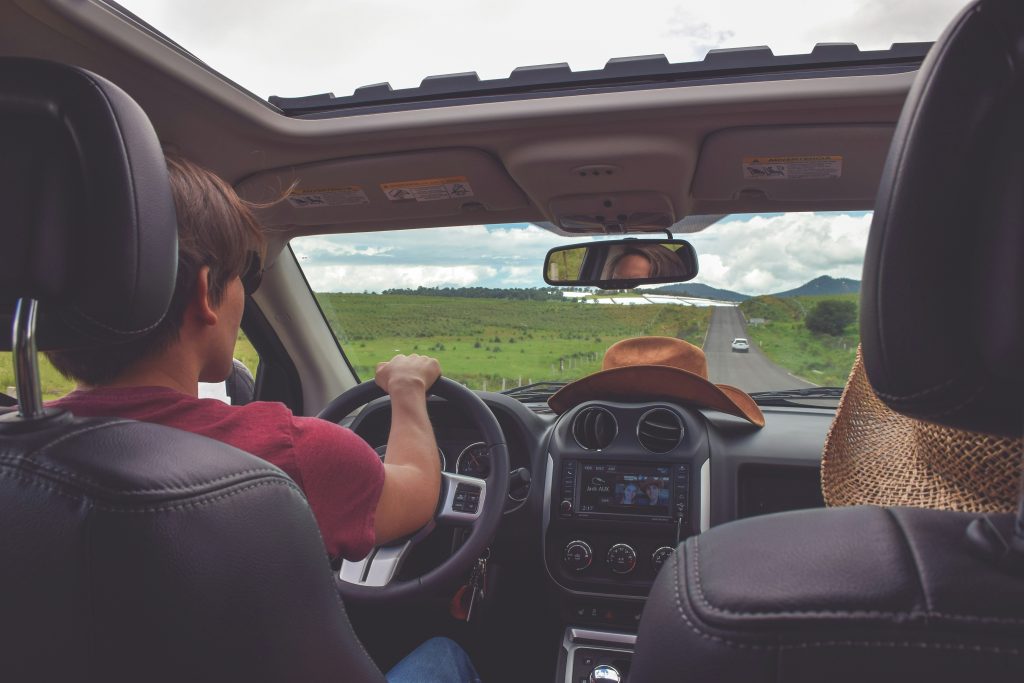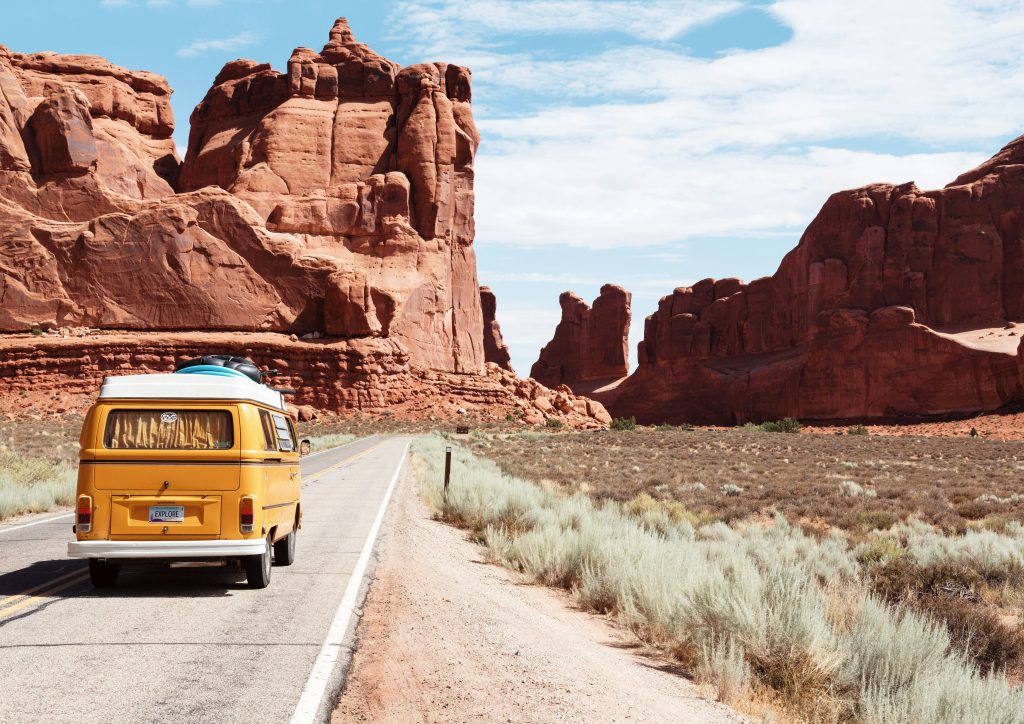Table of Contents
Embarking on an epic road trip doesn’t have to mean emptying your wallet. With strategic planning and a few insider tips, you can save money on your road trip and still have an unforgettable experience.
Avoiding chain restaurants to save money on food and seeking super cheap road trip hacks can significantly reduce your daily expenditures, leaving more for those memorable adventures.
One key area to focus on is accommodation costs. Rather than splurging on expensive hotels, consider alternative options that save money, such as staying with friends in San Francisco or exploring cost-effective lodging choices. Every dollar saved on sleeping arrangements can be used to enrich other aspects of your journey.

Planning and Budgeting for Your Adventure
Thoughtful planning begins with understanding gas prices and locating the cheapest gas stations along your route. Tools like Google Maps and Gas Buddy are invaluable for road trippers, helping map the journey and accurately forecast fuel costs.
Favorite camping and camping apps can also aid in finding affordable overnight options, ensuring you stay within your budget. You can avoid unwelcome surprises by setting a preliminary budget that considers fluctuating gas prices.
Allocating funds for anticipated expenses helps maintain financial control, enabling you to enjoy the scenic views without the burden of unforeseen debts.
Calculate Your Journey Expenses
Before hitting the road, it’s crucial to calculate your journey expenses meticulously. Estimating fuel costs, accommodations, activities, and food will give you a clearer picture of your financial needs. Remember to factor in any unexpected costs that may arise to ensure a smooth trip.
Consider the potential need for a tow truck or extra cash for speeding tickets, which can quickly escalate costs. Setting aside an emergency fund is a smart way to address any hiccups without derailing your budget.
Route Mapping and Mileage Planning
Efficient route mapping and mileage planning are at the heart of a cost-effective road trip. Utilizing apps highlighting the road trip route with the best gas prices and cell service can lead to significant savings.
Additionally, planning for car camping spots along your route can reduce accommodation expenses. Decide on the activities you’d like to engage in and plot them out in advance. This strategy saves fuel and maximizes your time, allowing for a richer travel experience without unnecessary detours that add miles and costs.
Overnight Accommodation Budgeting
To save on overnight stays, consider leveraging hotel room discounts or searching for accommodations near farmers’ markets for fresh, affordable food options. These strategies can dramatically reduce overall travel expenses.
Budgeting for accommodation requires a balance between comfort and cost. Researching various lodging options and comparing prices can yield substantial savings, particularly when booking multiple nights or outside peak tourist times.
Trip Duration and Companions Consideration
The length of your trip and the number of companions can greatly influence your budget. A longer journey means more spending days, while additional travelers can share the driving load and expenses. Collaboration on finding cheap gas and splitting costs can make the trip more affordable for everyone involved.
Group travel also presents opportunities for shared memories and lower per-person costs. From the start, open communication about budgeting and expenses ensures that all companions are on the same page financially.
Set a Realistic Road Trip Budget
Setting a realistic road trip budget is more than just daily expenses; it’s also about being prepared for the unexpected. Including a line item for a tow truck service or allocating money for potential speeding tickets can prevent financial stress on the road.
Dining in restaurants less often can also leave room in your budget for more unique travel experiences. Remember to prioritize an emergency fund within your budget. This reserved money can be a lifesaver in situations that require immediate funds, from vehicle breakdowns to last-minute changes in plans.
Tracking Expenditures on the Go
Keep a close eye on your spending as you travel. Tracking expenditures in real-time helps ensure that you stay within your budget and can adjust as necessary. This proactive approach can save money on a road trip, making the entire trip more enjoyable without worrying about overspending.
Whether it’s fuel, food, or fun, knowing where your money is going can help you make informed decisions that enhance the overall road trip travel experience. Small savings along the way can add up to a more financially sustainable adventure.
Avoid High Traffic and Tourist Seasons
Traveling during high traffic and peak tourist seasons can significantly inflate the cost of your road trip. From pricier accommodations to congested roads that burn more fuel, these times can strain your budget. Planning your trip during off-peak periods can lead to quieter, more enjoyable travel and better deals.
By avoiding the crowds, you save money and enjoy attractions with fewer visitors. This can translate to a more personal and memorable experience, allowing you to appreciate the sights without the rush and expense of peak season.
Smart Packing to Cut Costs
Smart packing is an essential factor in reducing road trip costs. You can avoid unnecessary purchases by bringing only what you need and efficiently utilizing space. This preparation can make your trip more enjoyable by eliminating clutter and keeping your focus on the experience.
Packing strategically means considering all possible needs and ensuring you have the essentials without overpacking. This balance helps maintain a comfortable and cost-effective trip, freeing you to enjoy the journey without the burden of excess baggage.
Essential Items to Bring Along
When packing for your road trip, remember to include all essential items. This ensures you have everything you need, preventing unplanned expenses for forgotten items. A well-thought-out packing list is key to a successful and economical journey.
From clothing suited to the weather conditions to emergency supplies, your essentials should cover the basics of comfort, safety, and practicality. This foresight saves you from buying items at a premium while on the road and keeps you prepared for any situation.
Efficient Packing to Reduce Space and Need for Purchases
Efficient packing involves more than just bringing the essentials – it’s about maximizing your space and reducing the need for additional purchases. By organizing your belongings and utilizing space-saving techniques, you can ensure that everything has a place and that you’re not wasting money on items you already have.
Listening to insider tips on packing can also reveal clever ways to bring more with less. Space-saving bags, multi-purpose gear, and a minimalist mindset can make your road trip enjoyable and economical.
Accommodation Savings
Saving on accommodations can significantly reduce the overall cost of your trip. You can find deals that save money and enhance your travel experience by researching and comparing prices.
Explore Free Camping Options
One of the best ways to save a ton of money on accommodations is to explore free car camping options. The West Coast, in particular, offers a variety of places to camp that won’t cost you a dime. From beachside retreats to forested hideaways, there are numerous campsites in the USA where you can rest without opening your wallet.
When opting for free camping, it’s important to research ahead of time and ensure you’re staying in a legal and safe area. Many camping apps and resources can help you locate the perfect spot to pitch your tent or park your camper, blending adventure with savings.
Leverage Last-Minute Hotel Deals
Leveraging last-minute deals can lead to significant savings for those who prefer the comfort of a hotel room. Many hotels offer discounted rates on unsold rooms; sometimes, you can find gift cards or special promotions that reduce costs.
Keeping an eye out for these opportunities can make a luxurious night’s stay more accessible on a tight budget.
Make Use of Campervan Swaps and Rentals
Embracing van life during an epic road trip can significantly lower accommodation costs. Campervan swaps offer a unique opportunity for road trippers to explore different regions without the hefty price tag of rentals.
By swapping your campervan with another traveler, you can enjoy the comforts of a home on wheels in a new location while keeping your expenses low. This community-driven approach saves money and fosters a connection among like-minded adventurers.
For those without their van, rentals can be economical, especially when split among a group. Rental companies often offer a range of options, from basic to fully-equipped campervans, allowing travelers to tailor their experience to their budget.
By selecting a campervan that meets your essential needs, you can embark on a cost-effective journey, reveling in van life’s freedom and flexibility.
Benefits of Booking Accommodations With Kitchens
Securing accommodations with kitchens can dramatically reduce your road trip expenses. Being able to prepare meals means avoiding the high costs associated with dining out. Whether it’s a simple breakfast or a full dinner, the savings from cooking add up quickly.
Additionally, accommodations with a kitchen provide the convenience of storing leftovers and snacks, allowing additional cost-cutting on food throughout your trip. Kitchens also offer a more health-conscious way to travel.
You can control ingredients and portions by preparing your meals, ensuring that your road trip doesn’t derail your dietary preferences or restrictions. With meal prep, you can maintain a balanced diet and save money, making kitchens an essential feature for budget-friendly accommodations.

Fuel-Efficient Traveling
Maximizing gas mileage is critical for cost-effective road tripping. Planning a route that avoids heavy traffic and steep terrain can help maintain consistent fuel efficiency. Additionally, ensuring your vehicle is well-maintained, with properly inflated tires and a tuned engine, can improve gas mileage.
Embracing a smooth driving style and avoiding rapid acceleration and heavy braking also contributes to fuel savings. By prioritizing fuel efficiency, travelers can extend the distance of their journey without the burden of excessive gas expenses.
Find Cheap Gas and Plan Your Route
Using tools like Google Maps and Gas Buddy can save significant fuel. Google Maps aids in plotting a road trip route that’s not only scenic but also economical, avoiding areas with notoriously high fuel prices.
Gas Buddy, a dedicated app for locating gas stations with the lowest prices along your route, empowers travelers to make informed decisions when it’s time to refuel. By planning, one can ensure that their road trip itinerary includes stops at budget-friendly gas stations.
In the vast expanses of the western United States, for example, fuel prices can vary significantly between locations. Advanced gas app planning can pinpoint where to fill your gas tank without overspending.
Moreover, travelers can pack their food to avoid premium prices at gas stations and rest stops and look for hotels or Airbnb options with vacant rooms for last-minute deals, further stretching their travel budget.
Enhancing Your Vehicle’s Fuel Economy
Enhancing your vehicle’s fuel economy is a savvy way to conserve funds for road tripping. Regular maintenance checks, including oil changes and air filter replacements, can prevent inefficient fuel consumption.
Removing excess weight from the car and minimizing the use of roof racks, which increase drag, also improve gas mileage. By adopting these practical tips, travelers can enjoy a more fuel-efficient journey, ensuring their trip adventure remains within budget.
Gas Station Discounts and Loyalty Programs
Savvy road trippers can tap into gas station discounts and loyalty programs to shave dollars off their fuel costs. Many gas stations offer loyalty cards that accumulate points with each purchase, leading to fuel discounts on future fill-ups.
Additionally, some retail chains provide gift cards that can be used at branded gas stations, often at a discounted rate, yielding instant savings for travelers. It’s not uncommon for credit card companies to partner with gas stations, offering cashback rewards or fuel discount incentives for using their card when purchasing gas.
By leveraging these loyalty programs and credit card offers, road trippers can reduce their overall fuel expenditure, freeing up funds for other aspects of their trip.
Economical Road Trip Cuisine
Consider the substantial savings from preparing your meals when planning a road trip. Opting for a hotel or Airbnb with a kitchenette allows travelers to cook meals that cater to their tastes and budget.
Packing snacks and beverages reduces the need for expensive mid-morning snack stops. By implementing these practical tips, the costs of road trip cuisine can vary greatly, with self-catering proving to be a more economical and enjoyable option.
Cook Your Meals and Utilize Campfires
Part of the allure of a road trip adventure is the opportunity to cook meals amidst nature’s backdrop. Utilizing campfires not only offers a rustic and memorable dining experience but also cuts down on costs.
Campgrounds often provide designated areas for campfires, complete with grills, enabling travelers to prepare various dishes, from hot breakfasts to grilled dinners. Planning meals around a campfire lets you enjoy hearty, cost-effective cuisine while basking in the great outdoors.
Kitchenette Use in Accommodations
Kitchenettes in accommodations are a budget-friendly boon for road trippers. These compact but functional cooking spaces allow for preparing meals ranging from quick snacks to elaborate dinners.
Using a kitchenette to whip up a homemade dish saves money and provides a comforting taste of home while on the road. This amenity can be a game-changer for those seeking to stretch their travel dollars further.
Picnics vs. Dining Out
Picnics offer a delightful and cost-effective alternative to dining out. With a little preparation, travelers can enjoy a variety of foods in picturesque settings, often for a fraction of the cost of restaurant meals. Whether it’s a sandwich at a rest stop or a salad in a park, picnics allow for a flexible and budget-friendly dining experience, complementing the spontaneity of road travel.
Embrace Local Markets and Cooking Over Restaurants
Choosing local markets over restaurants can significantly reduce food expenses while enriching the travel experience. Markets offer cheaper, fresh, regional produce, allowing travelers to immerse themselves in the local culture.
Cooking with ingredients from these markets supports the local economy and provides a fun and affordable way to explore new cuisines. By prioritizing market visits, one can savor authentic flavors without the hefty price tag of dining out.
Bring Your Beverages and Snacks
Bring your beverages and snacks to further cut costs on a road trip. Stocking up on water, sodas, and healthy snacks before hitting the road can prevent overpriced impulse buys at convenience stores.
A cooler keeps perishables fresh and accessible, ensuring hydration and satisfaction throughout the journey. This simple yet effective strategy helps maintain energy levels and budget while exploring.

Enjoying the Journey for Less
Exploring national parks is a prime example of enjoying the journey for less. These natural treasures offer endless opportunities for adventure and sightseeing without the high costs associated with typical tourist attractions.
With affordable entrance fees and the chance to witness some of the country’s most stunning landscapes, national parks are ideal destinations for budget-conscious travelers seeking unforgettable experiences.
Prioritize Free Attractions and Natural Wonders
There’s an abundance of free attractions to enjoy while road-tripping. BLM land, managed by the Bureau of Land Management, and national forests provide vast stretches of public lands perfect for exploration at no cost.
Many Walmarts allow overnight stays in their parking lots, offering a convenient and free option for sleeping in your vehicle. By prioritizing these natural wonders and cost-free opportunities, travelers can immerse themselves in the beauty of the outdoors without straining their wallets.
Purchase a National Parks Pass
Purchasing a National Parks Pass can lead to substantial savings for those looking to save money on a road trip. The pass grants access to numerous national parks nationwide for a one-time fee, ideal for frequent visitors and those embarking on extended road trips.
Investing in a pass reduces the overall cost of entry fees and encourages travelers to visit multiple parks, maximizing the value of their adventure.
Plan Splurges and Budget for Entertainment
While enjoying activities and car camping can enrich your road trip experience, planning these splurges carefully is essential. Allocate a portion of your budget for entertainment, keeping in mind the location’s cell service availability, which can affect your access to digital payment or reservation systems. You can indulge in memorable experiences without financial stress by anticipating these costs.
Transportation Savings Beyond Fuel
Aside from saving money on gas, consider other transportation costs that can add up. Investigate alternative routes to avoid toll roads and embrace public transportation where possible.
Utilizing a debit card for tolls can sometimes offer discounts. Planning your route with these savings can significantly reduce overall travel expenses.
Avoid Tolls and Utilize Public Transit
One way to keep costs down is by avoiding toll roads and utilizing public transit when possible. Use a debit card for electronic toll payments, which may help you qualify for lower rates.
Additionally, public transit can be more cost-effective and less stressful in urban areas than navigating through traffic and searching for parking.
Renting a Car Affordably
To ensure you have all the road trip essentials without overspending, consider renting a car that balances comfort with fuel efficiency. Look for rental deals that include unlimited mileage to avoid unexpected fees, and always compare prices across different rental agencies to secure the best rate.
Skip Unnecessary Rental Insurance
When renting a car, you can save by declining the rental company’s insurance if your personal car insurance or travel credit cards already cover you. Check with your insurance company and credit card provider to understand your coverage, which can often protect you without additional rental insurance.
Connect and Save: Social Tips
Networking with locals can be your ultimate guide to affordable hidden gems. Take advantage of hotel credit cards and loyalty programs; some offer savings like 40 cents off per gallon of gas or 30 cents back on every purchase. These savings can be substantial if you’re heading to San Diego or similar destinations.
Network With Locals for Insider Deals
Engaging with locals can lead to insider deals and recommendations that aren’t widely advertised. From dining to entertainment, locals may share tips on how to experience their city on a budget, which can enhance your travel experience while saving you money.
Join Travel Communities for Exclusive Discounts
Becoming part of travel communities can provide exclusive discounts, including savings on accommodations and activities. Look out for special offers on gift cards or fuel discounts, which can be particularly valuable for long-haul road trips. Engaging in these communities also allows for sharing tips and experiences with fellow travelers.
Money-Saving Travel Apps and Resources
Leverage technology for financial planning on the road. Use travel apps to locate the cheapest gas at nearby gas stations or budget-friendly accommodations. These resources can be a game-changer for keeping expenses in check and ensuring you stay on track with your budget.
Essential Apps for Budget Road Trippers
There are numerous apps designed to offer money-saving tips for road trippers. From fuel calculators to discount locators, these apps help travelers make informed decisions about where to fill up, dine, and rest, all while keeping an eye on the budget.
Discounts and Membership Cards Worth Having
Membership cards for grocery stores and other retailers can lead to significant savings. These cards often provide discounts on food, supplies, and sometimes even fuel, making them a valuable asset for any cost-conscious traveler.
Preparing for Emergencies Without Breaking the Bank
Emergencies can happen, but with proper preparation, they don’t have to derail your budget. Set aside a contingency fund, and consider investing in reliable roadside assistance coverage to prevent unexpected events from becoming financial burdens.
Emergency Roadside Assistance and Coverage
When road-tripping, it’s wise to have emergency roadside assistance and coverage. This can include services like towing, jump-starts, or tire changes. Use cruise control to maintain a consistent speed limit, preventing wear and tear on your vehicle and reducing the risk of needing these services.
Keeping an Emergency Kit and Spare Funds
Always carry an emergency kit with first aid supplies, water, and tools. Additionally, spare funds should be kept accessible for unforeseen expenses. This preparation allows you to handle most roadside emergencies without incurring high costs.
Off-Peak Perks – Traveling During Low Season
Traveling to national parks and other popular destinations during the off-peak season can offer numerous benefits, including lower prices and fewer crowds. This timing often leads to a more relaxed and budget-friendly road trip experience.
Advantages of Road-Tripping in the Off-Season
Traveling during the low season can offer significant savings and a more serene experience. With fewer tourists, accommodations and attractions often promote lower rates, making it easier to find budget-friendly options.
The demand for cheap gas typically drops in the off-season, leading to more affordable prices at the pump. This stretches your travel budget further and allows for a more leisurely pace without the pressure of peak-season crowds.
Another benefit of off-season road-tripping is the reduced need for travel insurance. With less congestion and better driving conditions, the likelihood of encountering travel disruptions diminishes.
This can lead to more predictable travel expenses and less concern over potential financial losses due to unforeseen events. Thus, an off-season road trip can yield monetary savings and a more relaxed journey.

Ending Your Trip Without Empty Pockets
Concluding your road trip with finances intact requires discipline and smart planning. Throughout the journey, maintaining a log of expenditures helps identify areas where you can cut costs.
Opt for experiences that offer rich memories without a steep price tag, and utilize the perks of traveling in a group by sharing costs. By keeping a close eye on spending, you can end your adventure with a sense of accomplishment and a wallet that isn’t depleted.
Before heading home, take a moment to review your budget versus actual spending. This exercise is invaluable for planning future trips, as it reveals insights into spending habits and potential savings opportunities.
By assessing the cost-effectiveness of decisions made during the trip, you’ll be better equipped to save money on your next road trip, ensuring that each adventure is more financially sustainable than the last.
Evaluate Spending and Learn for Next Time
After traveling along Highway 1 and other favorite road trip itineraries, reviewing your expenses is crucial. Categorize your spending to identify where you might have splurged unnecessarily and pinpoint opportunities to cut back.
This post-trip analysis is a key step in learning how to save money on your next road trip. Reflecting on the costs of accommodations, attractions, and dining can guide future budget allocations for a more economical road trip adventure.
By understanding the nuances of your spending, you can make informed adjustments that will enhance your future travels. For example, determining if that scenic detour was worth the extra fuel can help plan more efficient routes next time.
With each road trip, you gather valuable data that aids in refining your travel strategy, ensuring every subsequent journey maximizes enjoyment while minimizing expenses.
Conclusion: Planning Your Next Adventure With Savings in Mind
As you plan an epic road trip along Highway 1, through Los Angeles, and into Southern California, keeping personal finance in mind is essential. Integrating travel tips learned from previous trips, like packing healthy snacks to avoid costly city tourism eateries, can substantially decrease expenses.
Consistently seeking ways to save money on your next road can help make each journey more affordable and enjoyable, allowing for a greater exploration of your favorite road trip itineraries.
Prepare for the next adventure by researching destinations during the off-season, considering accommodations with kitchenettes, and prioritizing free activities. By applying lessons from past trips and staying informed on cost-saving strategies, you can embark on memorable excursions that respect your budget.




